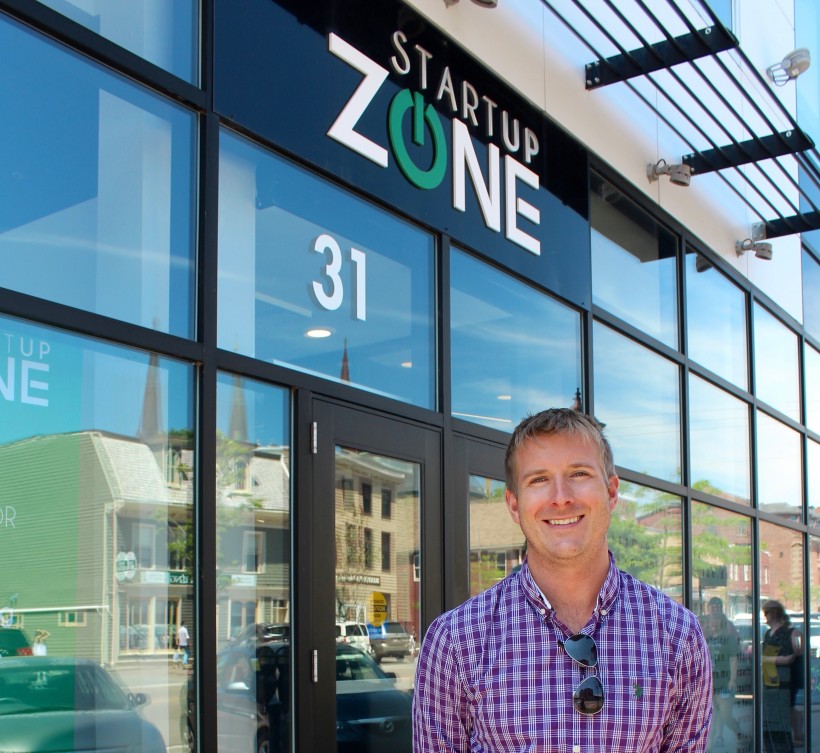Startup Zone, the entrepreneurial incubator in the heart of Charlottetown, had a busy year in 2019, starting an in-house accelerator and co-hosting a MentorCamp. And now CEO Patrick Farrar is looking forward to more activity in 2020.
Patrick Farrar, who left a senior position with Venture for Canada in 2018 to become the CEO of Startup Zone, said the ecosystem in P.E.I. is evolving with a larger community of entrepreneurs, and greater collaboration in Atlantic Canada and across the country.
The Startup Zone opened in 2016 to provide a hub for entrepreneurial activity on P.E.I., and its position in the community has grown as the number of entrepreneurs has increased. Its website says there are now 80 member companies, three-quarters of whom have increased revenue since joining.
“It’s been a great year,” said Farrar. “Entrepreneurs are in good hands with strong partnerships on the Island and across Atlantic Canada to direct you where you need to go.”
The big story on P.E.I. was the number of high-value transactions, especially in the life sciences sector, that have fueled growth. These include: the sale of drug manufacturer BioVectra to U.S. private equity firm H.I.G. Capital for as much as US$250 million (C$330 million); pet health company MicroSintesis selling a minority stake for $16.4 million to John Risley’s private equity fund, Northern Private Capital; and the P.E.I. research group Center for Aquaculture Technologies selling to Cuna del Mar, the aquaculture-focused investment group backed by Walmart heir Christy Walton.
Meanwhile, the support network for early-stage companies has been developing, especially the Startup Zone Accelerator, which focuses on pushing founders to generate sales, assigning mentors to each young company.
“We’re seeing more entrepreneurs, which leads to more collisions, more collaborations, more networking,” said Farrar. He added Startup Zone is now working more closely with other organizations, such as Atlantic Canadian groups like Volta, Genesis, and Venn, and national groups like Communitech and the Canadian Digital Media Network in Kitchener, Ont., and Startup Canada in Ottawa.
One highlight of 2019 was the Mentorcamp held in Charlottetown in September. As well as a chance for mentorship for several Atlantic Canadian companies, the event also featured a fascinating discussion for the community on the various phases of fundraising, from the first hundred-thousand dollars to more than 10 million.
Farrar believes the increasing numbers of entrepreneurs will help the ecosystem further in 2020. There are more founders thinking big, he said, meaning they’re reaching out to national and international customers to scale their businesses.
“Having more people also lays the groundwork for developing mentors because as these early entrepreneurs develop and gain experience, they will assist others,” said Farrar. “The next year will bring a strong focus on scaling up businesses while continuing to grow the entrepreneurial ecosystem.”










